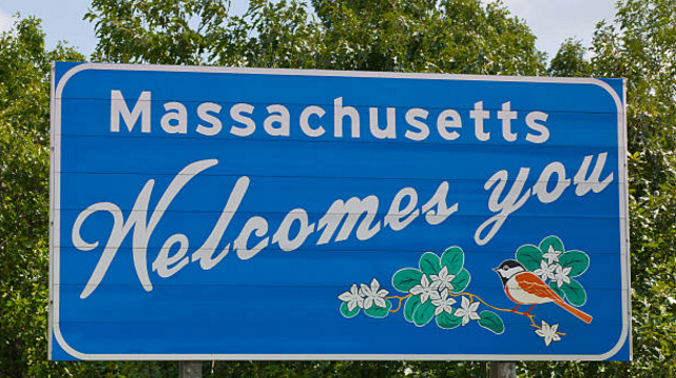Following in the footsteps of other early adopting states, Gov. Charlie Baker (R) of Massachusetts today signed a new bill into law that officially starts the process of legalizing marijuana for recreational use in Massachusetts.
Voters initially spoke on this issue back in November when they approved Question 4 (the recreational marijuana measure) with almost 54% support. Gov. Baker’s signature comes after months of negotiations in the state legislature.
A Compromise Bill
The compromise bill has some striking contrasts to the initiative voters passed last year. The most glaring difference is the proposed sales tax. Voters originally approved a 12% sales tax. But state legislature negotiations have pushed it up to a maximum of 20%, with the state taxing marijuana at 17% and local municipalities having the option to levy an additional 3% tax.
Even with the changes, the Governor made it clear that he opposes the law. Expressing his continued concerns to reporters, Baker said, “I don’t support this. I worry terribly about what the consequences over time will be and, having spent a lot of time talking to folks in Colorado, and in Washington, there are a lot of pitfalls we have to avoid.”
Despite his concerns, Baker chose to support the will of the voters, adding, “We appreciate the careful consideration the legislature took to balance input from lawmakers, educators, public safety officials, and public health professionals while honoring the will of the voters regarding the adult use of marijuana.”
What the Bill Means
ArcView Market Research and New Frontier Data project the recreational cannabis industry in Massachusetts to hit close to $1 billion by 2020, with the state poised to take in up to $200 million in additional tax revenue annually.
Given the high stakes involved, the state intends to take its time rolling out the new program. The earliest possible date that stores may begin selling cannabis for the adult use market is July 1, 2018.
Gov. Baker, Massachusetts Attorney General Maura Healey (D), and State Treasurer Deb Goldberg (D) each recently appointed members to the state cannabis advisory board. They have until September 1 to appoint members to the Cannabis Control Commission, a separate group that will be charged with crafting the rules and regulations that will govern the recreational marijuana industry.
The commission will have until March 2018 to announce the regulations. If all goes according to plan, prospective business owners will be able to begin applying for licenses in April, with the first of those being issued in June, just ahead of the targeted July 2018 launch date.
Local municipalities still retain the option to prevent the sale of recreational marijuana in their cities and towns. In areas where Question 4 failed, local governments can enact complete bans on the opening of recreational marijuana stores. In areas where the measure passed, any proposed ban must go before the voters.


Leave a Reply
You must be logged in to post a comment.